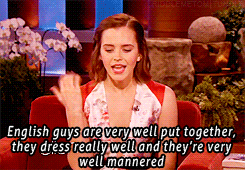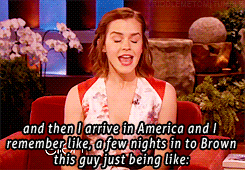Ella was always very close to her father, and her mother's death only made her more so. When he fell in love again, she was delighted for him, though she wasn't overly fond of his new love, and her two daughters were positively unpleasant to her. Ella's family had always been poor, and through skill and dedication to her art, she had become an accomplished seamstress. Her clothes were always nicer than what others were wearing, and you could never tell to look at her that she was poor.
It wasn't long after her father's second marriage that her step mother and step sisters' polite requests for ever more elaborate clothes became demands.
When her father passed away, she was utterly desolate. Her step mother's demands worsened, and extended. Soon Ella was cooking and cleaning for the whole household, as well as dressmaking. She was barely given enough food to eat, let alone any money for materials. Her own clothes became ragged. The house was heated only by fires, and she was often covered in soot and dust from cleaning them. Her step-family started to call her 'Cinder-Ella' and the name stuck.
Cinderella dreamt about getting out of the house, making her own way in the world. She thought maybe that she could start a business making dresses. But she had no idea how to go about getting the capital needed to start out.
The King was getting impatient. He wanted to have a grandchild to continue his legacy. He worried what would happen to the country if there was no one to take over from his only son. But his only son, Prince Mark, wasn't interested. He was waiting for the right woman before getting married and he wasn't budging. He insisted that she existed, but he just had to wait to meet her.
The King, being quite literal minded, decided that what he needed to do was to organise for Prince Mark to meet the right woman. He had already tried introducing him to every Princess from nearby lands, but Mark had said that none of them were 'the one'. The King said that he would be happy enough for the Prince to marry a commoner if he wanted to, so long as he married someone. So he arranged for a series of balls, one for each region of the Kingdom. Each time he sent out an invitation to every household in the region. All eligible women were invited.
Cinderella read the invitation when it arrived of course. She thought it was ridiculous really. How could one party be enough to decide who you would marry? Especially when you met hundreds or thousands of people at it? Oh, but it would be great to have the materials to make a dress worthy of a Prince's ball. But mostly, she didn't want to go. Until her step mother said she couldn't. Cinderella was a teenager. Of course she wanted to go then. All eligible women were invited. She was just as eligible as her step sisters! She worked on so many plans to get to the ball, but got nowhere.
Knowing that many people would see them, she poured her heart into her step sisters' dresses. Her step mother was sure that the Prince would want to marry one of them, so she allowed no time or expense to be spared. Cinderella managed to sneak enough time and materials from the dresses to make one for herself. She still had no shoes, and no way to get to the ball (which was a long way off). But if she did get there, she knew all eyes would be on her. She hoped that she might get an investor for her dress making business that way. Hoped beyond hope.
The night before the ball, Cinderella woke up to the sound of fluttering at her window. Concerned and surprised she went to it. There was a fairy. Convinced she was dreaming, since she didn't believe in fairies, she opened the window anyway. The fairy introduced herself as Cinderella's fairy godmother. Cinderella's mother had prevented a logger from cutting down a fairy ring of trees and the fairies had promised her that, in return, they would provide one favour to her first born child when needed. The fairy was going to provide her with shoes and a carriage and make sure that her step-mother slept through. But, she was a fairy and there had to be conditions. The shoes would be a perfect fit, moulded to her feet on the inside and beautiful beyond compare on the outside. They would fit perfectly for walking and dancing. But Cinderella could not run. If she ran, the shoes would fall off. And the carriage would come to her house at seven to bring her to the ball. But it would leave the ball at midnight, and if she didn't catch it she'd be stranded.
The next morning Cinderella woke up, wondering at her strange dream. Then she looked at her dress where it was hanging, so sorry that she would not have the chance to wear it and show it off, but optimistic that the dresses she made for her sisters might still be her ticket out. And then she looked below the dress. And there were two shoes, beautiful beyond compare and perfect for her dress. She tried them on and found they fit like gloves.
Sure enough, at seven o’clock, her step sisters had left, her step mother was fast asleep, and the carriage waited outside.
The palace was even more splendid than usual, made up for the ball. Cinderella barely noticed the people staring at her beautiful dress as she took it all in. But they were. She enjoyed the music and the food. She ate as much as she could, which wasn't much, the rich food disagreed with her stomach, sick from having so little for so long. She had just finished a fourth conversation with another woman who said she loved her dresses, and would buy them if she could, but didn't have the money to invest in the business, when she finally saw the prince. "My goodness, but he is handsome." She thought. Then she laughed at herself. He had thousands of women to choose from, why would he choose her? Why would she even want him to, she hadn't even talked to him!
The King had said that each woman at the ball must have one dance with the prince. Cinderella was nervous despite herself. But Prince Mark was polite, and pleasant, and kind. During their three minute dance, they talked. Something clicked between them. Sometimes, in life, you just know for certain that someone's personality matches yours, works with yours, even after a few minutes. Cinderella was sorry when the time was over; she really wanted to keep talking to him. But she knew that he had so many other women to dance with, so she said goodbye and walked away.
A few hours later, Cinderella was sitting alone in a corner. She was torn. She had had a lot of interest in her dresses, but no backers for her business. She was more convinced than ever that she could make it, if only she could get a start. But she was no closer to that start than before. Her thoughts also kept creeping back to the conversation with the prince, try as she might to stop them. Had he felt it too? That connection, that sureness that they should be, at least, friends? He was probably just being nice. He probably had to be nice.
She looked at her watch, it was five to twelve! The carriage was at least ten minutes away. She walked as fast as she could, even dancing a bit to the music to move faster, but she knew it was no use, she couldn't get there without running. So she lifted the ends of her dress and ran. But just as the fairy predicted, her shoes loosened and came off. But she kept running, barefoot, and caught the carriage just in time.
Meanwhile, Prince Mark was telling his father that he could call off the rest of the balls. He had met her. The woman he would marry. He just needed to find her again in this room full of women, so that he could ask her to be his wife. Then he saw her, Cinderella, lift her dress and run. He saw her shoes come off. He ran after her, begging her to stop. But she was very fit from all the house work, and he never caught her. He went back to where her shoes were and picked them up. He looked inside and saw that they were moulded to a particular pair of feet. He kept the shoes.
The next day two groups of the Kings' men were touring the region with the shoes, asking all women who were at the ball to try them on, searching for the owner. Cinderella's step mother came to the door, heard the story and invited them in. Cinderella watched from the shadows as her step sisters tried on the shoe, which clearly didn't fit them. The men were about to leave when she accidentally dropped a pot, making a noise. Despite her step mother's insistence that she wasn't at the ball, the men persuaded Cinderella to try on the shoe, which of course fit perfectly. Leaving her bewildered step-family behind, she got into the carriage and was brought back to the palace.
The prince ran out and hugged her when she arrived. She was delighted to see him and hugged him back. Then he went down on one knee and opened a small jewellery box, showing a beautiful, elaborate ring and asked her to marry him. Her eyes and mouth wide, Cinderella failed to say anything for several minutes. When she did speak, she was almost crying. "I'm, I'm sorry. I'm so honoured. But I can't agree to spend my life with someone I've just met. It's not a no, but maybe a not yet?" Prince Mark looked crestfallen, but said he understood. He asked her what she wanted, and if she would get to know him better and consider it in the future. She explained her plans for her business and he insisted that he would invest, exclaiming how impressed he was with her work, no strings attached. He did request that she give him the opportunity to get to know her better.
Three years later, Ella's dresses were the talk of the Kingdom. Even her step-mother and step sisters, who now appreciated just how hard all that housework was, were buying them. She had more than paid back the capital that her only investor, Prince Mark, had given her, and owned her own business outright. Their first impressions had proved correct, that first connection had built into a beautiful friendship and then a love affair. Three years exactly after the first time, he asked her again to marry him. This time she said yes, they got married, the King got his grandchildren, and they all lived happily ever after.











